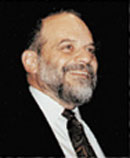
by Rabbi Dov Berl Wein
The Torah emphasizes the names of the family of Yaakov in this week’s parsha as it did in even greater detail in last week’s parsha of Vayechi. There may be many varied reasons for this concentration of interest in the names of the tribes of Israel. But whatever the reasons are the Torah obviously feels it to be of great importance. In fact throughout the Torah the names of the tribes are repeated many times. After all, we might ask, what is in a name? But the names of our ancestors are drummed into us by the Torah to provide us with a sense of continuity and tradition. The Jewish people are about to experience centuries of exile and eventual slavery in Egypt. They are certainly in danger of being destroyed both physically and spiritually. The rabbis have taught us that by not forgetting their original names, by not completely becoming Egyptian in name and deed, the hope of the Jewish people to be redeemed and freed never died out. The names of their ancestors reminded them of their past and of the commitment of God to redeem them from their bondage and afflictions. This experience of Egyptian exile imbedded within the Jewish world the importance of remembering our original names. For it was the existence and use of those names that prevented their extinction as a special and eternal people. Thus the introduction to the book of Shmot, the book of bondage and redemption, is the list of names of the sons of Yaakov, the eternal reminder of who the Jewish people really are.
Over the centuries, the Jewish people have continually struggled to retain their identity and sense of continuity through their names. In the Ashkenazic world it became customary to name children after deceased ancestors. This became a deeply emotional bond in families ultimately leading to children being given multiple names to commemorate more than one ancestor. In the Sephardic tradition names are given to honor living grandparents and relatives. But there also the sense of continuity and purpose is stressed in the granting of those names. In more modern times Jews were given secular names as well to be used in general society. However, over the last few decades the use of exclusively Jewish or Hebrew names as the sole name of a person has returned to be in vogue. So apparently there is a great deal involved in a name. Even in the non-Jewish world the use of biblical names remains quite popular and widespread. People hunger for a connection to their past and such traditional, biblical, family names seem to provide a sense of immortality and continuity that flashy "cool" names cannot provide. Names can therefore be an anchor to one’s own self-worth and purpose in life. The Torah’s insistence on recording the names of the sons of Yaakov - the eventual tribes of Israel - highlights this important fact of life and family to us. Perhaps this is what Midrash meant when it taught us that one pf the causes of the redemption of Israel from Egyptian bondage was "that they [the Jewish people] did not change their names [from Hebrew ones to Egyptian ones.]"

No comments:
Post a Comment